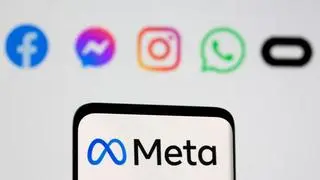Faisal Farooqui, Chief Executive Officer of Mouthshut.com, is a satisfied man. For MouthShut was one of the first companies to challenge Section 66 A of the Information Technology Act, a controversial law that made posting of ‘offensive’ comments online a crime punishable by jail. Today, the Supreme Court scrapped Section 66A after terming it detrimental to the constitutionally enshrined principle of free speech.
“I think it’s for the first time in over 50 years that a law has been scrapped for being unconstitutional. That’s a great victory for every Indian,” said Farooqui, the founder of MouthShut, a user-generated platform where users can post reviews of products and services. In an interview with BusinessLine , the US-educated entrepreneur said that internet giants Facebook and Google should have joined the movement against Section 66A. Edited excerpts.
So Section 66A of the IT Act will soon be relegated to the archives. What are your first thoughts on this landmark verdict?
Look, I took on this battle as both CEO of MouthShut and as an individual who values his freedom and space on the internet. So, today’s a great day for everybody who believes that the internet should remain open.
I would like to congratulate every Indian for this victory. The verdict will become a great catalyst for the country, paving the way to digitally transform the Indian economy. I would also like to thank the media for creating awareness about the draconian nature of Section 66A.
How did MouthShut get involved in this campaign against Section 66A?
MouthShut has been getting legal notices to take down stuff from its website ever since the 2009 amendment to the IT Act. Refusal to pull down ‘offensive’ content was met with a request for the IP address of the person who made the posting, so that he/she can be prosecuted under Section 66 A.
So, we were caught in a difficult situation. Our campaign against the Section began in 2012 but we were unsure of what to do in the first 6-8 months. No other internet company seemed to be interested in joining the campaign.
We thought the Facebook’s and the Google’s of the world would challenge the legality of Section 66A as they have a strong user base in India. Since, these giants did not take the lead, we went ahead and filed a writ petition in April 2013, challenging the content removal aspect. The free speech campaign became stronger after police arrested Shaheen Dadha for posting a Facebook comment questioning the shutdown of Mumbai city in November 2013 after Bal Thackeray’s death.
Without Section 66A, how can people deal with hate speech and the entire issue of offensive online content?
If somebody is affected by cyberspace chatter, they should confide in the judicial system. There are provisions in the Indian Penal Code for defamation and defamatory content. Just because the medium has changed to online to offline, the nature of the laws need not change.
The Supreme Court has held that no content takedown should happen without a judicial order. If the Court directs MouthShut to delete content, we are happy to comply.
What would be the commercial implications of the Supreme Court verdict on MouthShut?
From a commercial standpoint, MouthShut will now go full stream and grow its business. We will tell our users to freely use the platform for posting true and honest opinion. I foresee MouthShut becoming a big player in the next 12-18 months.
After Section 66A, what next?
I think we are more or less done with the IT Act. On behalf of millions of Indians, the next big frontier would be net neutrality. At some point, the entire issue of net neutrality will also go to Court. We will be at the forefront there too.







Comments
Comments have to be in English, and in full sentences. They cannot be abusive or personal. Please abide by our community guidelines for posting your comments.
We have migrated to a new commenting platform. If you are already a registered user of TheHindu Businessline and logged in, you may continue to engage with our articles. If you do not have an account please register and login to post comments. Users can access their older comments by logging into their accounts on Vuukle.